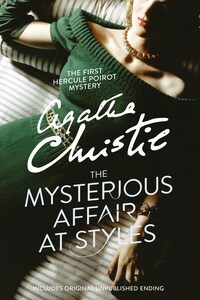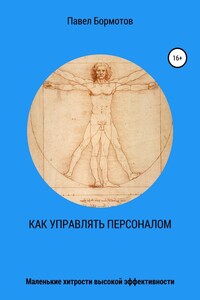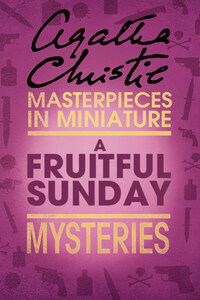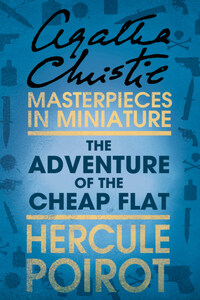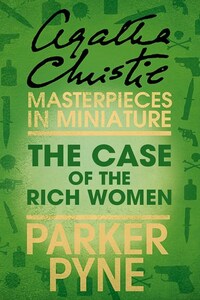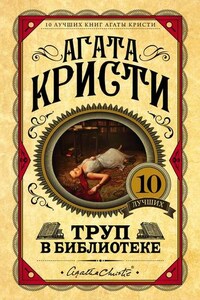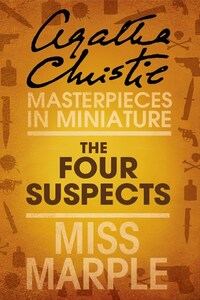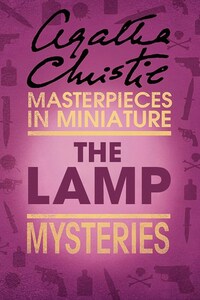THE MYSTERIOUS
AFFAIR AT STYLES
This novel was originally written as the result of a bet, that the author, who had previously never written a book could not compose a detective novel in which the reader would not be able to ‘spot’ the murderer, though having access to the same clues as the detective. The author has certainly won her bet, and in addition to a most ingenious plot of the best detective type she had introduced a new type of detective in the shape of a Belgian. This novel has had the unique distinction for a first book of being accepted by the Times as a serial for its weekly edition.
John Lane, The Bodley Head, 1921
HarperCollinsPublishers 1 London Bridge Street London SE1 9GF
www.harpercollins.co.uk
Styles edition 2016
First published in Great Britain by The Bodley Head Ltd 1921
The Mysterious Affair at Styles™ is a trade mark of Agatha Christie Limited and Agatha Christie® Poirot® and the Agatha Christie Signature are registered trade marks of Agatha Christie Limited in the UK and elsewhere.
Copyright © 1920 Agatha Christie Limited. All rights reserved.
www.agathachristie.com
Introduction copyright © John Curran 2013
Agatha Christie Notebooks/‘The Last Link’ unpublished original version copyright © Christie Archive Trust 2013
Agatha Christie asserts the moral right to be identified as the author of this work.
A catalogue copy of this book is available from the British Library.
This novel is entirely a work of fiction. The names, characters and incidents portrayed in it are the work of the author’s imagination. Any resemblance to actual persons, living or dead, events or localities is entirely coincidental.
All rights reserved under International and Pan-American Copyright Conventions. By payment of the required fees, you have been granted the non-exclusive, non-transferable right to access and read the text of this e-book on screen. No part of this text may be reproduced, transmitted, down-loaded, decompiled, reverse engineered, or stored in or introduced into any information storage and retrieval system, in any form or by any means, whether electronic or mechanical, now known or hereinafter invented, without the express written permission of HarperCollins.
Source ISBN: 9780008123185
Ebook Edition © 2017 ISBN: 9780007463497
Version: 2017-10-18
by John Curran
In An Autobiography, written towards the end of her life, Agatha Christie gives an account of the genesis of The Mysterious Affair at Styles, her first published novel written some fifty years earlier. It had its origins in a challenge from her sister Madge: ‘I bet you can’t write a good detective story.’ At the time Agatha was working in the dispensary of the local hospital and had a professional knowledge of poisons. This, coupled with the fact that Belgian refugees fleeing the First World War were arriving in her home town of Torquay on the south coast of England, provided Agatha with both her murder method and her detective’s background.
This was not her first literary effort, nor was she the first member of her family with literary aspirations. Both her mother Clara and sister Madge wrote, and Agatha had already written a ‘long dreary novel’ (her own words in a 1955 radio broadcast) and some short stories and sketches. Though the stimulus to write a detective story probably was the bet with her sister, there was obviously an innate talent within Agatha to plot and write such a successful book.
Although she began writing The Mysterious Affair at Styles in 1916 (the novel is set in 1917), and eventually completed it at the encouragement of her mother during a two-week seclusion in the Moorland Hotel, it was not published for another four years. Its publication was to demand consistent determination on its author’s part as more than one publisher declined the manuscript. Finally in 1919 John Lane, co-founder of The Bodley Head Ltd, asked to meet her in London with a view to publication. But even then, the struggle was far from over.
The contract that John Lane offered her for the mistakenly named The Mysterious Affair ‘of’ Styles, dated 1 January 1920, took advantage of Agatha Christie’s publishing naivety. She explains in her autobiography that she was ‘in no frame of mind to study agreements or even think about them’. Her delight at the prospect of publication, combined with the conviction that she was not going to pursue a writing career, persuaded her to sign a six-book contract. She was to get a royalty of 10 per cent only after 2,000 copies were sold in the UK, and she was obliged to produce five more titles in a clause that was to lead to much correspondence over the following years.
